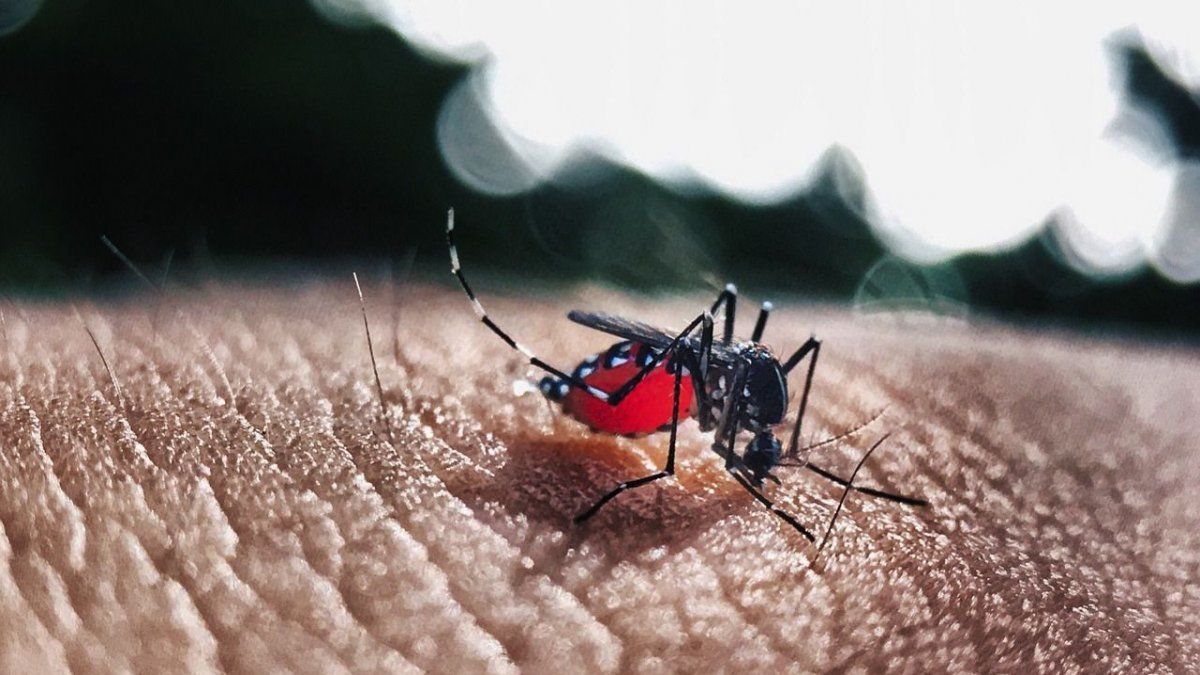The University of Buenos Aires (UBA) confirmed that it will deliver repellent of its own production for free this Thursday, November 14 and Saturday, November 16, in Plaza Houssay. The measure is part of the prevention campaign against dengueas summer approaches and the chances of contracting it grow.
In this way, they will carry out an awareness and prevention activity against dengue, while at the same time they will be delivered (with prior reservation by WhatsApp) repellents developed in a joint effort between the Faculty of Medicine and the Faculty of Pharmacy and Biochemistry.
Under this line, professors and students from the different careers and techniques of the university They will carry out six solidarity days until this Saturday intended for residents of vulnerable neighborhoods in the City of Buenos Aires within the framework of the UBA in action program.
The complete calendar of UBA activities
Tuesday 12/11: Dental care and blood tests.
Wednesday 11/13: Dental care.
Thursday 11/14: Medical, dental and ophthalmological care, psychological care, legal advice, veterinary and castrations, delivery of repellent.
Friday 11/15: Dental care.
Saturday 11/16: Delivery of repellent / Dental care / Medical care / Ophthalmic optics / Economic and legal advice / Cardiovascular risk factors / Weight, height and blood pressure measurement / Blood glucose / Nutritional counseling / Addiction prevention. Dissemination of scholarships to study at the UBA / Psychological care / Museum network / UBA XXI advice / Primary clinical care for canines and felines / Anti-rabies vaccination / Internal and external deworming / Responsible coexistence advice / Vocational guidance / Advice for admission to the Center University of trades Electrocardiogram / CPR talk / Myths and truths about vaccines / Determination of blood group and factor / HIV tests / Kinesthetic counseling / Physical examination / Podiatric care.
What to do after being diagnosed with dengue and how to prevent it
He dengue It is a viral infection that is transmitted by the bites of females. Aedes aegypti mosquitoes and it is not spread from person to person. However, when a patient is diagnosed, a mosquito can feed on their dengue-affected blood, then bite other people and transmit the disease.
In this sense, it is important to know the measures to take care of yourself and others. According to experts, dengue usually causes a high fever that can last between 2 to 5 days. During this period, the patient is in the viremia phaseso the virus is found in the blood. If a mosquito bites the person during this phase, they can become infected with the disease.
Because of this, it is very important that the infected person take prevention measures in the febrile stagethe recommendations are:
- stay locked up in a room with mosquito nets and air conditioning.
- Use repellent and repeat the application depending on the duration of the effect of each product.
- Relatives of the patient should Check for breeding sites for mosquito eggs and larvae. nearby to eliminate them.
Dengue symptoms: how they start
If symptoms occur at the time of the disease, people generally begin with feverthen severe headaches, joint pain, muscle pain and rash.
The most frequent symptoms are:
- High fever (greater than 38°)
- Intense muscle pain
- Pain behind the eyes
- Headache
- Discomfort
- lack of appetite
- Red spots or rash on the body, which may itch
If you present any of these symptoms, you should go to the doctor to receive appropriate treatment. Furthermore, it is important to highlight that you don’t have to self-medicate if they are not medications indicated by health professionals.
Recommendations to eliminate mosquito breeding sites
- Eliminate all unused containers that can accumulate water (cans, bottles, tires, etc.) inside and outside the home and/or workplace.
- Turn over, cover or protect useful objects that are outside and can accumulate rain or irrigation water (buckets, basins, drums, toys, etc.).
- Brush, clean and change water in animal water bowls, air conditioning or rain drain collectors. Brushing or rubbing the inside walls of the container is essential to dislodge the mosquito eggs that are stuck there.
- Avoid having plants in water.
- Replace water in pots or plant containers with sand.
- Fill the pot holders with sand in order to absorb excess water when watering.
- Keep patios and gardens weeded.
- Unclog gutters and rain drains.
- Pour hot water on the grates and place mosquito netting on them.
- Keep tanks and containers (citters, cisterns, etc.) used to collect and store water covered.
- Keep swimming pools clean and chlorinated.
- Keep them covered when not in use.
Source: Ambito
I am Pierce Boyd, a driven and ambitious professional working in the news industry. I have been writing for 24 Hours Worlds for over five years, specializing in sports section coverage. During my tenure at the publication, I have built an impressive portfolio of articles that has earned me a reputation as an experienced journalist and content creator.




